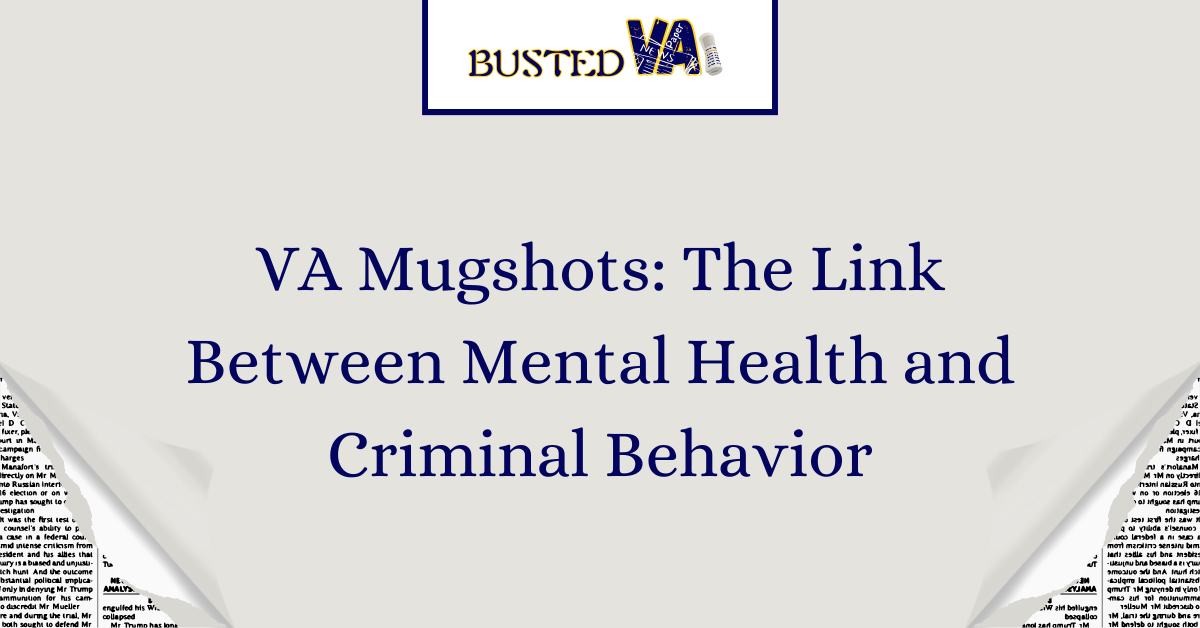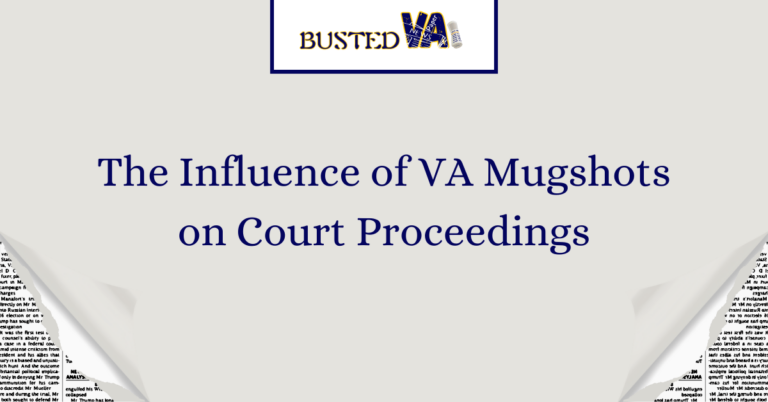VA Mugshots: Mental Health and Criminal Behavior
VA Mugshots, a platform showcasing the faces of individuals arrested in Virginia, often sheds light on the intersection of mental health and criminal behavior. While the mugshots offer a glimpse into the lives of those caught in the criminal justice system, they also raise questions about the underlying factors contributing to their involvement in illegal activities.
Understanding Mental Health and Criminal Behavior
Mental health disorders can significantly influence an individual’s behavior and decision-making processes. Conditions such as depression, anxiety, and schizophrenia may impair one’s ability to function effectively in society, leading to behaviors that could result in legal repercussions. Additionally, factors such as substance abuse, trauma, and socioeconomic status can exacerbate these issues, increasing the likelihood of involvement in criminal activities.
Intersection of Mental Health and Crime in Virginia
In Virginia, the nexus between mental health and crime is evident in various statistics and trends. Studies have shown that a significant proportion of individuals within the criminal justice system have a history of mental illness. Moreover, certain communities, such as those with limited access to mental healthcare services, are disproportionately affected by this correlation. Case studies from across the state further illustrate the complex interplay between mental health and criminal behavior.
Challenges in Identifying Mental Health Issues
Despite growing awareness, stigma and misconceptions surrounding mental illness persist in Virginia and beyond. Many individuals may not recognize or seek help for their mental health issues due to fear of discrimination or societal judgment. Furthermore, limited access to mental healthcare exacerbates these challenges, particularly for vulnerable populations such as low-income communities and people of color.
The Impact of Criminal Justice System on Mental Health
The criminalization of mental illness exacerbates the challenges faced by individuals struggling with psychological disorders. Instead of receiving appropriate treatment and support, many end up incarcerated, where their mental health needs may go unaddressed or worsen. Consequently, rates of recidivism among individuals with mental health issues remain high, perpetuating a cycle of incarceration and instability.
Support Systems for Individuals Exiting the Criminal Justice System
However, the challenges do not end upon release from incarceration. Many individuals struggle to reintegrate into society due to ongoing mental health issues and limited access to resources. Reentry programs and community-based mental health services play a crucial role in providing support and assistance to these individuals, helping them navigate the challenges of life outside the criminal justice system.
Policy Implications and Advocacy
Addressing the intersection of mental health and crime requires comprehensive policy reforms and advocacy efforts. Reforms within the justice system, such as increased access to mental healthcare services and diversion programs, are essential to breaking the cycle of incarceration for individuals with mental illness. Additionally, advocacy for mental health awareness and support can help reduce stigma and promote understanding within communities.
Case Studies Highlighting Success Stories
Despite the challenges, there are success stories of individuals who have overcome mental health issues within the criminal justice system. These stories highlight the importance of rehabilitation and treatment in reducing recidivism rates and providing opportunities for individuals to rebuild their lives.
The Role of Rehabilitation and Treatment in Reducing Recidivism
Rehabilitation and treatment-oriented approaches are essential in addressing the root causes of criminal behavior and supporting individuals in their journey toward recovery. By focusing on addressing underlying mental health issues and providing necessary support services, these approaches have shown promising results in reducing recidivism and promoting positive outcomes for individuals involved in the justice system.
Community Involvement in Mental Health and Crime Prevention
Communities play a vital role in supporting individuals with mental health issues and preventing crime. Community support networks provide essential resources and assistance to those in need, fostering a sense of belonging and connection. Additionally, education and awareness initiatives help dispel myths surrounding mental illness and empower communities to take proactive steps in promoting mental health and crime prevention.
Challenges Ahead and Future Directions
While progress has been made, significant challenges remain in addressing the intersection of mental health and crime in Virginia. Persistent issues such as stigma, limited access to mental healthcare, and systemic inequalities continue to hinder efforts to support individuals with mental illness within the criminal justice system. Moving forward, innovative solutions and continued advocacy will be crucial in creating a more just and equitable system for all.
FAQs
What is the relationship between mental health and criminal behavior?
The relationship between mental health and criminal behavior is complex and multifaceted. While not all individuals with mental health issues engage in criminal behavior, there can be a correlation between certain mental health conditions and an increased risk of criminal activity.
Are all individuals with mental health issues prone to criminal behavior?
No, not all individuals with mental health issues are prone to criminal behavior. It is important to recognize that the majority of people with mental health conditions are not violent or dangerous. However, certain mental health conditions, if left untreated or unsupported, can increase the likelihood of criminal behavior.
Misconceptions Mental Health & Crime?
There are several common misconceptions surrounding the relationship between mental health and criminal behavior. One misconception is that all individuals with mental health issues are dangerous or violent. Another misconception is that mental health conditions are solely responsible for criminal behavior, disregarding other contributing factors such as social and environmental influences.
Why grasp mental health’s effect on crime?
Understanding the impact of mental health on criminal behavior is crucial for several reasons. It allows for the development of effective interventions and prevention strategies, provides insights into the underlying factors contributing to criminal behavior, and helps reduce stigma surrounding mental health conditions within the criminal justice system.
Can improving mental health curb crime rates?
Addressing mental health effectively can contribute to reducing criminal behavior by providing individuals with the necessary support and resources to manage their mental health conditions. This can include access to mental health services, counseling, and community support programs. By addressing the root causes of criminal behavior, such as untreated mental health conditions, the likelihood of reoffending may decrease.







